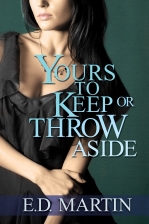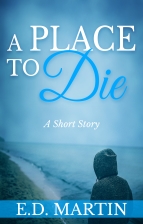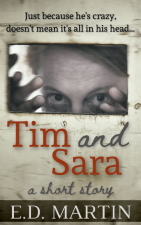This year I got involved in the local NaNoWriMo group, which we’ve decided to keep going throughout the year. While I didn’t come close to finishing, many people hit the 50k mark and were wondering what the next step is. I recently presented the following information; hopefully you’ll find it useful too.
NaNo’s Over – Now What?
Before you even think about publishing…
- Self-edit your manuscript.
- Length – is it long enough according to industry standards?
- Show vs. tell – if your book were a movie, would you rely on the actors or voiceovers to convey emotions and plot points? (BUT you don’t need every detail)
- Plot, subplots, and themes – identify these and make sure that everything in your story relates to them. Take out or rewrite scenes and characters that don’t fit
- Beta readers
- Find someone who will give you constructive feedback on what works and what doesn’t in regard to theme, characters, plot, etc.
- NOTE: your mom/significant other/best friend will generally not be objective or specific.
- Revise.
- Repeat steps #1-3, as many times as necessary.
- Line edits (no point until you have a well-written manuscript)
- Grammar, I-bombs, filter words, repetition, etc.
- Consider hiring an editor because spell check is not enough!
- Publish!
Publishing
- Generally selling exclusive first rights
- Not published elsewhere – non-password protected sites Google/anyone can access (your website)
- Generally less than 10% public is okay – snippets, 1st chapter
- No matter what option, you’ll be doing the majority of the marketing
- Options
- Self-publishing
- You do all the work (or hire someone) but maintain all control.
- $ = as much as you want to spend
- Smashwords, Book Baby, Kindle, Createspace, Lulu, etc
- Vanity
- You pay someone to publish your book on their terms
- $ = generally thousands of dollars, plus you pay inflated rates for your own books
- Tate, Publish America, generally any company that solicits you
- Traditional
- Someone does all the work and pays you (flat rate or royalties; advance)
- $ = generally nothing but depends on contract
- Two types:
- Big Five – generally 15% royalties, need an agent
- Indie/small press – higher royalties (30-50%), don’t need an agent
- Querying process:
- Find an agent who does your genre or a small press. Pay attention to books/authors you like to see who they use. Follow industry people’s blogs and on Twitter.
- Send a query exactly as instructed – 200-word blurb, first x pages or chapters.
- Repeat ad nauseum – expect dozens of rejections/nonresponses.
- Hybrid
- Mix of self-publishing and traditional
- Whatever works for you – varies from writer to writer, story to story
Author Platform
- Essential no matter how you publish
- Relationships, not advertising – do NOT spam!
- Polite to follow back but don’t feel obligated to become king/queen of [platform] – better to have engaged, interested followers than high numbers.
- Best engagement – ask questions people can answer, then respond
- Social media
- Twitter
- Follow people you find interesting – agents, writers, celebs, etc
- Try to tweet at least once a day – something interesting, not necessarily always about writing
- All about engagement – retweets, favorites, responding
- 140 characters
- Hashtags to get noticed: #amwriting, #amediting, #amreading; be creative
- Facebook
- Author page – people can like it, can’t see their info; easy to separate from personal
- Author account – friends with fans, can see their info and they see yours; technically not allowed to have 2 accounts
- Easier to have conversations
- FB limits who sees your page posts unless you pay; 10x more views for FBTwitter than TwitterFacebook, so try to use 140 character posts
- Not as popular (yet?)
- Google +
- Goodreads
- Website
- Essential central spot to send people who may not be on FB, Twitter, etc.
- Consider buying your own domain – looks more professional
- Layout
- Main page
- Bio – same for everywhere (long and short versions) + 1 pic for everywhere
- Novel/stories – titles, novel summaries, covers, publication dates, links to full text or place to buy
- Contact info – form/email address, mailing list, social media links
- Blog
- If you have one, update regularly: daily, weekly, monthly, whatever works for you
- Blogger, Weebly, Wix, WordPress.com (free but limited customization), WordPress.org (on your own host; more flexibility)
If you’ve published, is there anything you’d like to add to this? If you’re an aspiring author, is there anything you need clarification on? Let me know in the comments!





